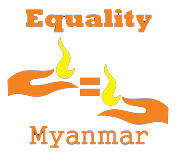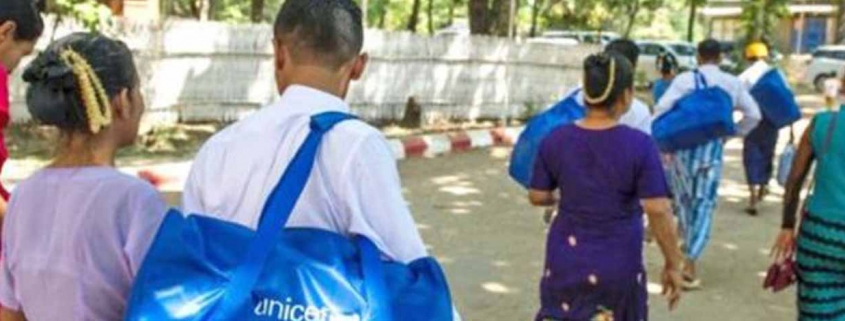The Tatmadaw (military) True News agency announced that the military has discharged seven children and 25 youths under the age of 18 who were recruited as soldiers.
The United Nations Children’s Fund (UNICEF) also announced that the military discharge underlines the importance of protecting children from armed conflict and within Myanmar’s peace process.
The military has discharged 956 children and young people since Myanmar signed a Joint Action Plan with the UN to prevent recruitment and use of children in the military in 2012.
Knut Ostby, the acting UN resident and humanitarian coordinator, and June Kunugi, UNICEF representative, who co-chair the UN Country Task Force on Monitoring and Reporting (CTFMR) on Grave Violations against Children, welcomed this latest discharge as “another encouraging step by the government toward ending and preventing the recruitment and use of children within the Tatmadaw.”
There are no more child soldiers or children recruited as soldiers in the Tatmadaw, Colonel Zaw Min Htun, spokesperson of True News, said.
“Most of the youths who were discharged arrived at the Tatmadaw three or four years ago before they were 18. Now most are over 20, but we are allowing them to leave as they were children when they started serving,” he said.
According to a statement from the military on Sunday, they are following steps for recruiting soldiers and would continue to do so till there are no more child soldiers in the military. It noted that the military had taken action against 96 officers and 352 soldiers who were involved in recruiting child soldiers. It did not elaborate.
U Aung Myo Min, director of Equality in Myanmar, said, “We welcome the release of Tatmadaw child soldiers, but I’m disappointed that there are child soldiers in the Tatmadaw, even it has been over seven years [since the Joint Action Plan was signed].”
He said the fighting with armed ethnic groups is one of the main reasons there are child soldiers in Myanmar, and this would improve together with progress in the peace process.
According to a statement by UNICEF, there are seven armed ethnic groups listed by the UN secretary-general as being “persistent perpetrators” in the recruitment and use of children in Myanmar – the Democratic Karen Benevolent Army,
Kachin Independence Army, Karen National Liberation Army (KNLA), Karen National Liberation Army Peace Council, Karenni Army, Shan State Army-South, and United Wa State Army (UWSA).
U Nyi Rang, spokesperson for the UWSA, denied that the group uses child soldiers.
“The kids in the UWSA are not recruited as soldiers. They are orphans who are brought to us for education and training to earn livelihoods. We take care of the next generation and give them a new home. They never serve as child soldiers,” he said.
General Saw Tee maw, spokesperson of KNLA Brigade 5, also denied that his group uses soldiers who are under 18.
“The KNLA is concerned with our national needs. We don’t need to recruit child soldiers. There are undocumented Karen people who are enthusiastic to join the Karen Army. We accept them within our rules and limits,” he said.
UN Security Council Resolution 1612 mandates the UN to establish UN-led task forces in countries where there is verified evidence that grave violations against children are being committed by parties to a conflict, either by armed forces or armed groups. The task force establishes a monitoring and reporting mechanism that documents, verifies and reports grave violations against children to the Security Council. Violations include: the killing or maiming of children, recruitment and use of children in armed forces and armed groups, attacks against schools or hospitals, rape or other grave sexual violence, abduction of children, and denial of humanitarian access to children.
The task force is also mandated to provide a coordinated response to such violations.


 Equality Myanmar (EQMM) is a leading nongovernmental organization that organises a wide range of human rights education and advocacy programs, the documentation human rights violations, and provides emergency support for activists, human rights defenders, and their families. We work with a range of local civil society organizations, educators, activists, various local actors, and our programs and activities reach all states and regions in Myanmar.
Equality Myanmar (EQMM) is a leading nongovernmental organization that organises a wide range of human rights education and advocacy programs, the documentation human rights violations, and provides emergency support for activists, human rights defenders, and their families. We work with a range of local civil society organizations, educators, activists, various local actors, and our programs and activities reach all states and regions in Myanmar.
